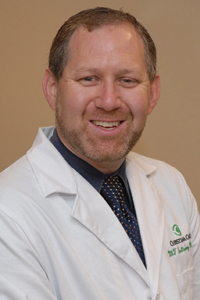Christiana Care named to elite group in heart failure research


Christiana Care is teaming up with Thomas Jefferson and Temple universities in Philadelphia to form one of only nine elite National Institutes of Health Heart Failure Clinical Research Centers in the nation.
The Christiana Care Heart Failure Program will provide scientific leadership for the seven-year project, which focuses on small to intermediate randomized clinical trials devoted to improving outcomes for heart failure patients.
“It is a very exclusive group, and we are grateful and honored to be named to one of nine regional centers in the U.S.,” says Mitchell Saltzberg, M.D., medical director of the Heart Failure Program at the Center for Heart & Vascular Health and the principle investigator for Christiana Care.
The network promotes collaboration that will help to find treatments for patients with heart failure, a serious condition that impairs the heart’s ability to pump blood, causing severe fatigue, shortness of breath and swelling. Heart failure kills more than 275,000 people a year in the U.S. and is the leading cause of hospitalization in patients over age 65.
The national network, like similarly designed collaborations for the study of asthma, autism and rare diseases, pools data from patients at multiple sites to strengthen and speed up research that would otherwise take much longer.
Christiana Care will receive $269,000 in funding from the National Heart, Lung and Blood Institute at NIH, in addition to proceeds from all network research trials that the health system participates in through 2018.
Dr. Saltzberg says the award extends far beyond financial help. The nine centers bring together the brightest and best minds in heart failure care from all over the country to create a forum to test novel theories to advance heart failure treatment options.
“The network allows for a rapid deployment,” he says. “It makes it much easier to engage a wide number of doctors with a wide range of experience in research.”
Clinical trials will be in short- to mid-term cycles, lasting from two to five years. As a first step, Christiana Care is reviewing practices for three procedures to enroll patients in trials related to them. The health system also expects to participate in nine other clinical trials as a result of the NIH award.
“This is an exciting opportunity to make advances that will help heart failure patients,” Dr. Saltzberg says. “It is a true joint effort and we look forward to being active players on a prestigious team.”